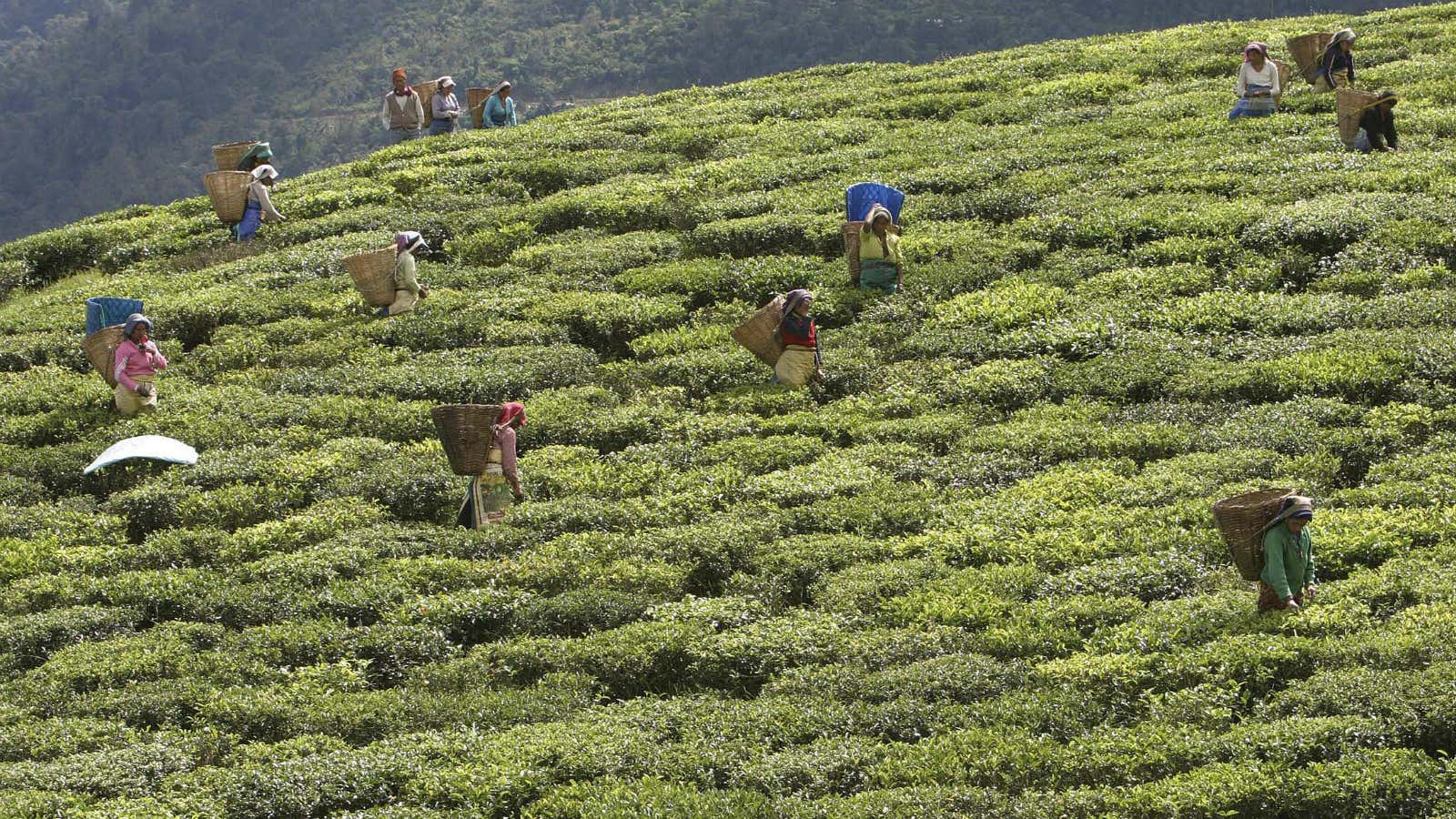Sikkim, the northeastern Indian state snuggled between Bhutan and Nepal, has now rid its agricultural land of pesticides and fertilizers making it the country’s first organic state.
The 75,000-hectare area was transformed as per the policies of the Indian government’s National Programme for Organic Production, meant to promote organic farming. This form of agriculture typically avoids the use of pesticides, fertilisers, genetically modified crops, and other artificial inputs. Instead, farmers use natural alternatives such as green manure and compost.
“We achieved fully organic status by the end of December. Prime minister Narendra Modi will formally announce this at a sustainable agriculture conference in Gangtok on Jan. 18,” S. Anbalagan, executive director of the Sikkim Organic Mission (SOM), told the Press Trust for India on Jan. 14.
Harmful pesticides
In 2003, Sikkim chief minister Pawan Kumar Chamling passed a resolution in the state legislative assembly, vowing to make the Himalayan state completely organic, and subsequently banned synthetic fertilisers and pesticides. Sikkim has one of the smallest agricultural land area in the country and it mainly produces maize, paddy and cardamom. This is what the SOM website wrote about the ban:
The ban of synthetic fertilisers, and pesticides at local level has led to reduction in the use of fossil fuels and emission of green house gases in addition to sequestering native soil and ecology of the state thereby playing an important albeit small role in mitigating the effects of climate change which is very significant in the fragile Himalayan ecosystem.
For long, India has grappled with challenges relating to the safety of pesticides and fertilisers. Much of that was a result of the Green Revolution, an initiative launched in the late 1960s to increase food production. This led to an increase in the use of modified seeds, fertilisers and pesticides, but also had socioeconomic cost due to environmental damages.
For instance, in May 2011, India’s supreme court passed an interim order banning production and sale of endosulfan, a deadly pesticide, after over 150 people in the south Indian state of Kerala were affected by hydrocephalus, which causes a swelling of the head, and mental retardation.
“It is a great initiative. States are now taking the lead on their own to implement such policies, and we believe they (policies) are in the right direction,” Amit Khurana, the programme head of New Delhi-based Centre for Science and Environment’s food safety team, told Quartz.
“India’s pesticide management programme has a lot of gaps,” Khurana added. “For instance, we need a system in place that regulates the daily acceptable intake of pesticides. There are also concerns that close to one-fifth of pesticides used in the country don’t have their minimal residual limit approved by food safety authorities.”
On the flipside, as states gradually adopt organic farming, there could also be a drop in yields. According to a research report by Jitendra Pandey and Ashima Singh of the Banaras Hindu University, organic farms yield between 10% and 15% less than traditional farms. However, the report added, the lower yield was balanced by “lower input costs and higher margins.”
